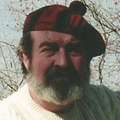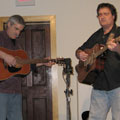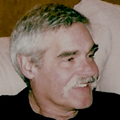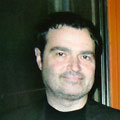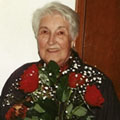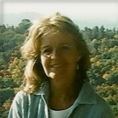The Escort
By Lon D. Campbell, 3/1/08
I became a licensed mortician in 1969 at the age of 22 years and after many a hard day of work. I had started this educational ordeal at the age of 19 years, some three years earlier in NYC at the American Academy McAllister Institute of Funeral Service, Inc. This was a private school situated on 70th Street in the heart of Manhattan on the west side in a nitty gritty section of the city. It was a great place for a young lad to wander, and wander I did, both alone and with my cronies. We ate and drank, chased women, and ate and drank, chased women, ate, drank, chased women, drank, well, you get the idea. We also occasionally attended school and somehow managed to pass our courses.
The curriculum lasted one full year, and each quarter of 90 days was added on to the upcoming 90-day quarter to create a full 365-day calendar. One had to pass each quarter to move on and, as we had been told in orientation, “Look to your right and look to your left and one of those two people you just saw will not be with us come graduation day.” Sobering stuff for a 19-year-old kid from North East, Maryland.
I was a bit of a “hot shot” in my hometown. Voted Senior Class President, Best Personality, all round good guy, keeper of secrets, and friend to all. I was a typical kid from the country. Small town boy. Trusting and caring. Thrill seeker and fun lover. I was ready for adventure and looking to move out of town to bigger and better things. Many thought that I was very adventuresome to go to New York City in 1966.
Nevertheless away I did go, and it was just what the doctor ordered, as the old saying goes. The formal education was formidable, filled with extensive courses in Anatomy and Physiology, Chemistry, both Organic and Inorganic, Restorative Art, Accounting, Law, Business Administration, Bacteriology and Microbiology, Practical Embalming, Embalming Theory, and Speech. The daily coursework consisted of an eight hour curriculum, with most if not all of the courses present.
I graduated in the spring of 1967 with a B- average. I also took the National Board Conference Exams of Funeral Service, Inc., and successfully passed their eight hour exam. It was a written exam and very difficult in its breadth and scope. I thought that I had surely failed it, but somehow I managed to pass it all. I then began an odyssey of the proverbial apprenticeship, which I began at the Robert A. Pumphrey Funeral Home in Bethesda, Maryland. I began the work making $75.00 dollars a week. This allowed me to keep a car ($60.00 a month car payment), rent ($25.00 a month), gas (unknown cost), clothing (unknown cost), food (unknown cost), etc. I somehow managed to keep afloat.
My roommate was my lifetime friend Greg Demond, who is still my friend today. We had a third roommate, Jay, who is lost in time. I do know that he joined the USMC and went to Vietnam. I also know that he returned safely, because I called him to find out, but further news is not forthcoming because I have not kept track of him beyond that point.
Greg and I had many good days during that two years and we enjoyed each other’s company very much. He met his wife Marsha during that period. He and I did a lot of adventuresome things. Bought a few guns, and again chased a few women. Did I mention that we chased a few women in New York too? You see, Greg was only three months ahead of me in school in New York. That was a tough-assed school and 50% of the class failed or dropped out. Rough business and very expensive. There was a nursing school just down the street from us in New York and we invited each other to parties. We had a lot of fun, but the course load was such that there wasn’t a lot of time for fun. I understand that now the school has moved across town to bigger and better “digs” and the course load is even more streamlined and difficult, and costly and difficult, and difficult, and difficult, and difficult.
The most unique aspect of our student body was a 65-year-old guy who had always wanted to go to school, but he had married young and had kids so that he could not afford to go, so he waited and waited until they were out of school and then he went. He struggled and struggled and studied and studied and somehow he passed all of his courses, but he seldom played around because he had little money and a stay-at-home wife in western Maryland where they all lived. He graduated with an on-the-mark passing grade, and he was so happy. He got a standing ovation at graduation, and I have never seen someone so happy to have accomplished a long range goal. We as a group were so happy for him. Good show! Good show!
We also had a small group of party animals, who did just that. They partied all of the time. I lived on the periphery of that group from time to time, and at times I lived within that group, but only for short bursts of time because I could not afford to party both financially and academically with that group. They came from families who were wealthy by and large and for the most part owned funeral homes in New York and New Jersey. I also suspect that they entertained a higher failure rating than the overall group.
I do know that one of the students in Greg Demond’s class graduated and joined the U.S. Army where he went to Vietnam where he was KIA (killed in action) or at least that is what we heard. Some of the guys wanted to go to Vietnam as civilians because the money as trade embalmers was so good, but how one went about joining the recruitment was a bit jumbled. I suspect it would not take long to unscramble since the layout was spelled out in the trade journals.
This missive was initially entitled “The Escort” and to date it does not slightly resemble anything to do with escorting anything as far as I can tell, so I had better get on the ball or change the title. The reason it was titled “The Escort” was because I actually did do a great deal of escorting of those young troops so very unfortunate to have been KIA (killed in action) in Vietnam. It was probably one just like us who was given the horrific assignment of “taking the boys home,” a title given to my task by my songwriting brother Zane who penned that song and sang it for years to come.
I escorted forty bodies of U.S. Army soldiers home to their families. My job was conducted primarily west of the Mississippi River, although I did have a few that ranged outside of that perimeter, one to Long Island, New York, and one to South Carolina (a transport to Puerto Rico). Many of my missions were within the confines of California, with some in Oregon and Washington State. Some were road trips and train rides, but the majority were commercial air passenger fare and only very few commercial air freight.
The boys were given the best that money could buy. I carried a set of orders spelling out my duties under the specifications of the U.S. Army directives. I was a Sgt. E-5 (Buck Sgt.) Hand Stripe (11-B) Infantry. I was required by directive to be equal to or above the rank of the individual I was escorting. I was given a set of orders for myself, one for the deceased, and a set of orders for the mission. The body was placed in a U.S. Army casket, OD gray, with a glass window for viewing. The body was dressed in a U.S. Army Class “A” uniform with all medals awarded the individual. The body was clean shaven except for a regulation moustache trimmed to U.S. Army specifications. I wore one throughout my U.S. Army career.
On my third trip out I went to St. Louis, Missouri, where I went to a home of a guy that could have been my twin brother. We were exact twins in appearance and from all told in demeanor. To complicate things further, the family wanted me to be him in all things past, and present, and future. At some point I had to tell the family to stop. They wanted me to be him and I could not do so in good conscience and faith. Especially the part of sleeping in his bed and eating at his place at the table. Bad business. He also had a girlfriend and she and I talked and worked out a plan to deal with his family, but it was a struggle to do so for a while. His first cousin came along and helped a lot. We went to a baseball game and drank a few beers. Very tough business. I knew that after that escort mission I could do it all and I did. After that I took soldiers of all nationalities back to their families without too much difficulty, but that trip tempered me and made me strong.
One of my trips was to New Iberia, Louisiana, the home of James Lee Burke, my favorite author of all time, at least at this time. He is the best of the best. Two Edgar Casey awards back to back. Amazing that he would be so good. He also lives in Missoula, Montana, and is an amazing writer. That trip happened to be for a black soldier. Most of the men in that town were black as I suspect they are now. The funeral director was black and he assigned me to a black man who reminded me of Kingfish on the “Amos and Andy Show.” The man took me around to all of the “Juke Joints” and told everyone to stay away from me or he would put a board up aside of their head. He had the physical demeanor to abide by his word. Word began to trickle through, and when I passed by people nodded or looked away. His car was also a piece of work. A Cadillac convertible. Club on the floor, pint of shine on the seat, pistol under the arm rest, and five pounds of shrimp to be steamed or boiled for whatever. I believe that the funeral director’s daughter took a liking to me. I suspect that anyway.
The most interesting thing happened in that town. Once they knew that I was there to bring home their loved one, I could not spend a nickel. Every evening about the same time I would get a knock on my door. Oddly, when I went to the door no one was there, but there would be a tray of food, good old Cajun food, and always with a bowl of gumbo. Dark gumbo, the best there is, with three bottles of beer. I went to the hotel manager to ask whom I owed, and he said I didn’t owe anyone anything. Just leave a tip on the tray for the waiter. Which I did. When I got ready to leave I discovered that all of the money I had left was in my pocket, and once again they would not take the money.
I am very proud of my accomplishments in graduating from the Academy in New York. It was a very tough school and I did well to do as I did. Many of my missions were emotionally trying, especially the Native American one since I am part Native American and could relate to them, especially the one on the Rosebud Indian Reservation where we flew in and landed during a snowstorm. What a mess. One of the planes had a load of canaries that had broken loose in the cargo hold in Denver, Colorado. The canaries were loose in the cargo hold, and when they opened the hold the birds flew out into the cold Denver snowstorm, soon to die from the cold weather. Canaries and VNR instrumentation flying to Valentine, Nebraska, to escort a body of a Native American to the Rosebud Indian Reservation.
I was given this honor only twice, and both times I had a mix-up. This time I was to lead the horse, but the medicine man was half drunk, and on the other one the family was all drunk. The leadoff was that the widow brought her boyfriend to her funeral viewing of the vet. The twin brother of the deceased punched out the boyfriend and caused a ruckus. We had to stop the brawl and the boyfriend got his lights punched out, white belt and shoes notwithstanding. Word came out that soon after the incident he had spent the $50,000 and moved on to the next one.
